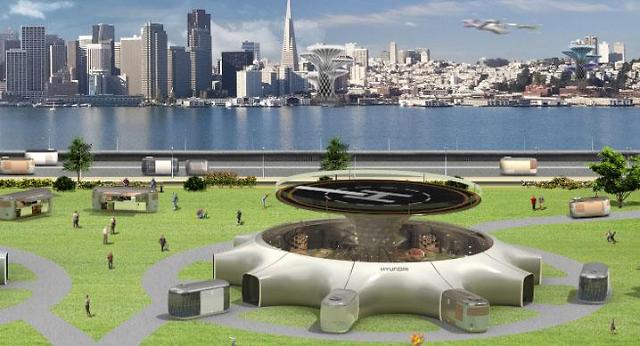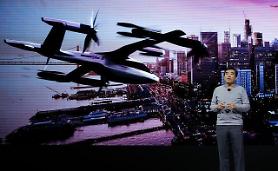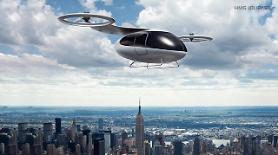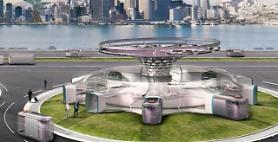
[Courtesy of Hyundai Motor Group]
SEOUL -- The urban air mobility division of South Korea's Hyundai auto group has expanded its airspace management consortium with the introduction of three new members to its industry working group. The new members will contribute strategic insight into the auto group's concept of operations for advanced air mobility airspace management and ground mobility integration.
Urban air mobility (UAM) is an ecosystem involving flying passenger vehicles in urban areas. Advanced air mobility (AAM) builds upon the UAM concept by incorporating use cases not specific to operations in urban environments. Sometimes AAM is called UAM, although potential applications could extend beyond high-density urban centers to reach underserved communities and geographically distant regions.
The consortium serves as a resource for the AAM industry and policymakers as they begin to shape common operating and design standards that support industry development. The three new members are Altitude Angel, a British provider of airspace management data and services, Skyroads, a German-based aviation embedded system developer, and OneSky, a U.S.-based provider of unmanned aircraft system traffic management (UTM).
The auto group said it would work with consortium members to simulate the operation of UTM and AAM networks and ultimately test the group's concept of operations. "AAM will operate at the intersection of today’s busiest and most complex transportation routes, particularly in the skies," Pamela Cohn, global chief operating officer at Hyundai's UAM division, said in a statement.
Hyundai is a member of UAM Team Korea, a public-private consultative body that would commercialize drone taxis in 2025. Chairman Chung Eui-sun has called for a drastic structural change to become a key player in the production of personal air vehicles. In June 2021, Hyundai partnered with ANRA Technologies, a U.S.-based cloud-based drone operational platform developer, to develop the operating environment for AAM.
Copyright ⓒ Aju Press All rights reserved.




